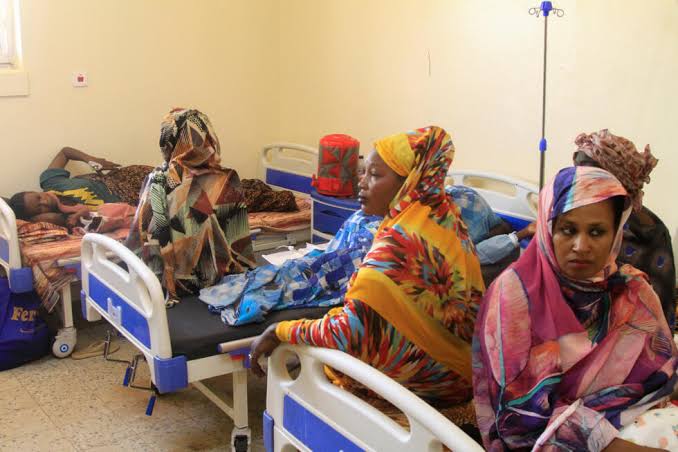As nearly 90% of hospitals in conflict-affected areas have had to close, numerous female healthcare workers have opted to remain, putting their lives on the line to help others.
“I had the choice to be with my children or to fulfill my responsibilities,” shared one doctor who chose to stay in Khartoum during an interview with AFP.
Since the onset of the conflict, the Sudanese Doctors’ Union reports that at least 78 healthcare workers have lost their lives, as hospitals endure ongoing assaults, shortages of supplies, and a mass departure of medical staff escaping the turmoil.
For some individuals, the choice to remain was profoundly personal. Dr. Fathia Abdelmajed, a pediatrician at Al-Buluk Hospital, has stayed since her arrival, committed to mentoring younger doctors who have been tirelessly serving since the onset of the war.
“Since I came to Al-Buluk, I have not left. Even the specialists were once our students, whom we trained,” she states. “I was the only senior physician here. These dedicated young professionals had been working since the war began, even before my arrival. They have achieved remarkable things, and I have become like a mother to them, providing guidance and support,” Dr. Abdelmajed shared.
Similarly, Dr. Safaa Ali, a gynecologist and director of Saudi Hospital, remained out of loyalty to her country and her profession.
“I have been working since the war started. I have not left Sudan. We draw strength from our love for our nation, our dedication to our work, and the oath we took,” she explains.
However, this decision came at a significant personal cost, as her own family chose to flee Sudan.
See more: The Sudanese military Declared Control of the Presidential Palace in Khartoum.
“My family, like many others, decided to leave because the children were becoming frightened, and our area had turned into a conflict zone. It was incredibly dangerous. When they decided to leave, I faced my own choice and spent the entire night contemplating. Ultimately, my commitment to my profession outweighed my family obligations,” she recounts.
The hospitals that continue to operate have increasingly depended on volunteer networks, such as the local Emergency Response Rooms, to address the shortages.




